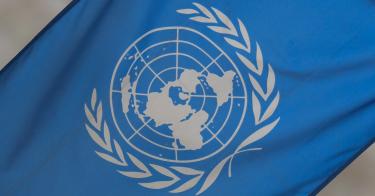Former U.N. Secretary General Dag Hammarskjöld once observed, “The United Nations was not created in order to bring us to heaven, but in order to save us from hell.” Unfortunately, recent events have shown that neither goal is within its grasp.
The U.N.’s response to Russia’s invasion of Ukraine has been anemic. The General Assembly passed nonbinding, hand-slap condemnations. Other U.N. organizations similarly condemned Russia’s actions. But punitive measures have been largely absent. In 1974, the U.N. suspended South Africa from the organization as a punishment for its apartheid policy. But today, Russia, despite invading a sovereign nation and committing numerous war crimes, remains a member in good standing, and no U.N. sanctions have been applied because Russia can veto Security Council resolutions.
The U.N. has also failed to condemn China for its many atrocities against the Uighurs, a Muslim minority in Xinjiang Province. These include the unfair detention of more than 1 million civilians, forced labor, and torture. The United States has called China’s treatment of the Uighurs a genocide, yet China continues to sit on the U.N.’s Human Rights Council.
Then there’s the U.N.’s COVID response. The World Health Organization (W.H.O.) initially abetted the spread of the pandemic by parroting China’s deadly falsehood that there was no evidence of human-to-human transmission. Later, the W.H.O. praised China’s response, while letting Beijing impede the investigation into the origins of the disease.
Meanwhile, the U.N.’s chronic deficiencies persist. Inadequate oversight has left millions of dollars vulnerable to misuse, and many U.N. development projects have been subject to fraud and corruption.
It’s undeniable that the U.N. does beneficial work: Its food and refugee programs feed and shelter many people. But the U.N. is without doubt much less than it could be, and the past few years have revealed plainly its limitations and failures.
This piece originally appeared in Upfront Magazine



